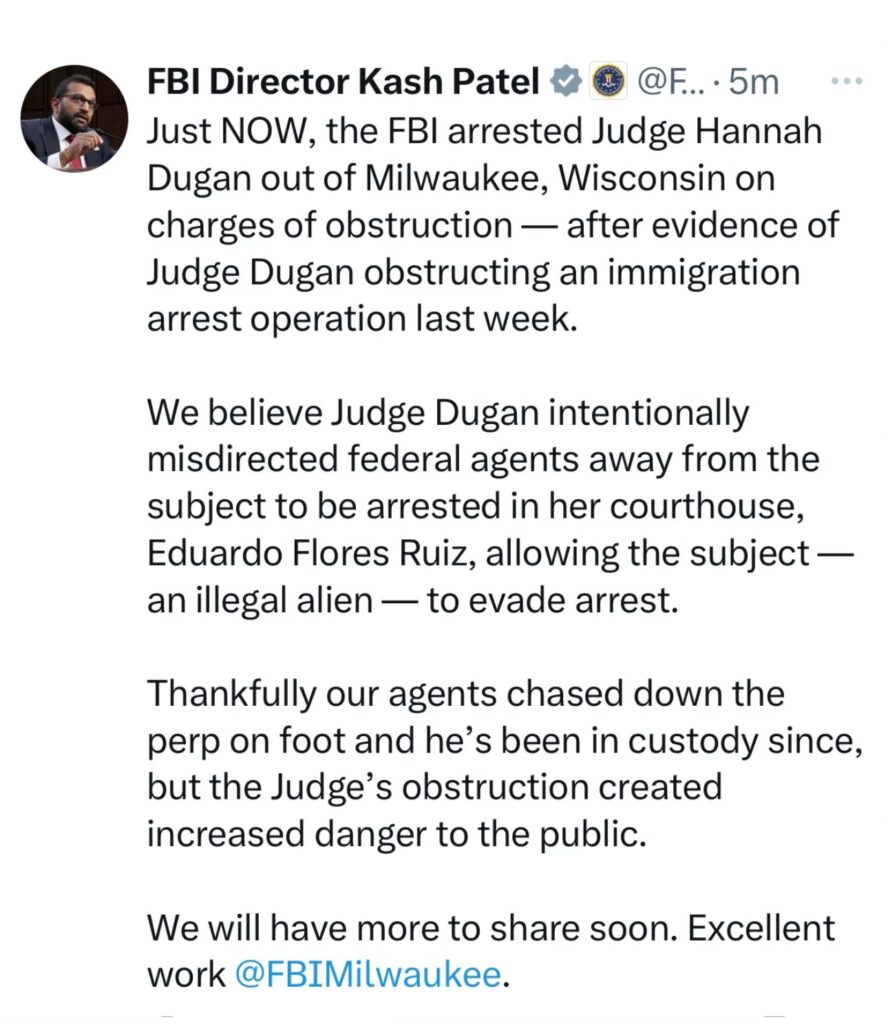Federal authorities arrested Milwaukee County Circuit Judge Hannah Dugan on Friday amid allegations that she obstructed an immigration-related arrest outside her courtroom, according to multiple local reports.
The arrest has ignited widespread legal and political debate as details continue to unfold in this developing story.
According to early reports, Judge Dugan is accused of interfering with U.S. Immigration and Customs Enforcement (ICE) agents who were attempting to detain an undocumented immigrant, Eduardo Flores Ruiz, scheduled to appear in misdemeanor court.
Federal agents allege that Dugan “misdirected” ICE officers, preventing them from executing the arrest.
The claim was initially made by FBI Director Kash Patel in a social media post that has since been deleted. The post alleged that Judge Dugan had knowingly obstructed federal law enforcement by providing misinformation to agents during the scheduled apprehension. While the FBI has not issued a formal statement, Dugan’s arrest was confirmed by multiple law enforcement sources.

Legal Fallout and Judicial Scrutiny

The arrest of a sitting judge by federal agents is an extremely rare and legally complex development. Judge Dugan, who has served on the Milwaukee County Circuit Court since 2016, has previously been recognized for her work in misdemeanor and community court proceedings.
Her alleged actions, if proven, could raise serious questions about the legal boundaries between local judicial authority and federal immigration enforcement operations.
Legal experts note that while judges often have discretion over courtroom proceedings, interference in federal arrests conducted outside of those proceedings may expose them to criminal liability.
“While judges are charged with maintaining courtroom order and protecting defendants’ rights, obstructing federal law enforcement can lead to serious consequences,” said a former U.S. attorney not affiliated with the case.
Immigration and Judicial Independence in the Spotlight
This case comes amid ongoing tensions between federal immigration authorities and local jurisdictions over cooperation in immigration enforcement.
Milwaukee, like many urban areas, has seen political and legal resistance to ICE operations near courthouses, where advocates argue such arrests discourage immigrant communities from engaging with the legal system.
The arrest may have significant political ramifications, particularly for those critical of what they view as “sanctuary” tendencies in local courts. Supporters of stricter immigration enforcement are likely to see this case as a test of federal authority under existing immigration statutes.
This is a developing story and will be updated as more information becomes available.

